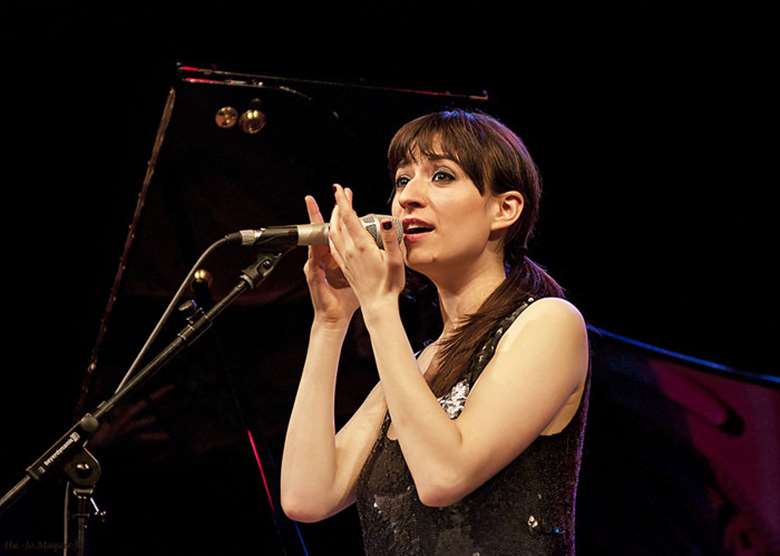Swiss vocalist Lucia Cadotsch serves subtle sentiment at The Vortex
Friday, November 11, 2016
An imaginatively programmed evening starts with a duo (Kit Downes and Ruth Goller) and ends solo (Dan Nicholls), but it is a trio that provides the highlight.

The band led by the young Swiss vocalist Lucia Cadotsch, featuring double-bassist Petter Eldh and tenor saxophonist Otis Sandsjo, gives an object lesson in focus and forensic detail in its arrangements, playing on the delicious paradox that the art of improvisation, so generative of freedom, can actually be at its most liberating when it is placed under careful, constructive constraints.
Cadotsch, whose working relationship with Eldh goes back to the band Schneeweiss & Rosenrot, has a pleasingly spare, sober approach to singing in which the absence of vibrato is matched by a lack of excessive phrasal ornamentation that in no way reduces the emotional charge of her performance. On a repertoire of astutely chosen standards that require strength of character as well as attention to detail she fares very well, above all with the Billie Holiday-owned anthems that are 'Strange Fruit', 'Don't Explain' and 'Gloomy Sunday'. Based on a Hungarian folk ballad the latter is one of the great laments adapted to the jazz canon, sardonically called the 'suicide song' by some artists, and the triumph of the group's interpretation hinges on the balance of clear melody and wily timbres. Cadotsch effectively extends the arc of daring modernism running from Billie to Abbey to the progressive art pop of Janis Ian, holding mostly adagio time, floating and sometimes slowing to stillness, blurring the line between song and spoken word, while her accompanists move in a sprightly higher tempo, whereby Sandsjo's see-saw groove is like a guitar arpeggio circling around the straight line of the vocal. His gravelly overtones and rasping multi-phonics also resonate with the potent bass of Eldh, often playing unison or producing twangy undefined noise through the slap and punch of the strings.
On a mesmeric rendition of Nina Simone's 'Ain't Got No, I Got Life', the two instruments fashion something of an organic echo chamber, which, further on in the set, is reinforced by the presence of Downes on a gorgeous-sounding harmonium, whose bellows is manipulated to yield an accordion's warm purr to contrast with the grainy reverb heard elsewhere. His switch to piano, which he had played earlier in an articulate duet with Goller on double bass, is also a welcome complement to the ensemble, fleshing things out without overwhelming in any way. Sandsjo, although he could move away from his rhythmic ostinatos a touch, is a similarly inventive and sensitive player, looking at the saxophone as a source of sound effects as well as clearly-enunciated lines, and the fluttering beats he creates by tapping the instrument's keys at appropriate moments brings yet more variety to the table.
The set ends with a take on Weil's 'Speak Low', the title track of Cadotsch's debut CD and it is the deal clincher for those who subscribe to the notion that the division between mainstream and avant-garde, or the concrete and abstract, is largely inconsequential. This is an evening of rich verse and chorus executed with a clarity and purpose that do not preclude an artful stretching of frameworks in which the themes are housed. There is a notable maturity and subtlety in Cadotsch's aesthetic that bodes very well for the future. Her next group recording is eagerly awaited.
– Kevin Le Gendre
– Photo by Hans-Joachim Maquet